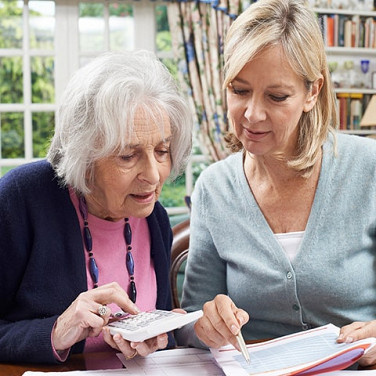Urinary incontinence extends beyond its physical challenges, often casting a profound emotional impact on individuals. Acknowledging and addressing these emotions is a crucial aspect of holistic well-being. In this exploration, we delve into the emotional aspects of living with urinary incontinence, offering coping strategies, emotional support resources, and advice on maintaining mental well-being.
Understanding the emotional impact:
- Overcoming stigma: Unveiling the societal stigma surrounding incontinence to boost self-esteem and confidence.
- Breaking the chains of isolation: Confronting the fear of social withdrawal by addressing the need for support and community connection. Conquering Anxiety and
- Depression: Tackling the emotional toll of unpredictability through proactive coping strategies.
Coping strategies:
- Embrace open dialogue: Sharing experiences with understanding peers and healthcare professionals to lighten the emotional load.
- Knowledge is key: Empowering individuals with comprehensive information and effective management techniques for a sense of control and empowerment.
- Embrace serenity: Utilizing mindfulness and relaxation practices to manage stress and anxiety effectively.
Seeking emotional support:
- Strength in numbers: Finding solace and understanding within supportive support groups, whether online or in-person.
- Professional guidance: Navigating complex emotions in a safe space through therapeutic counseling sessions.
Maintaining mental well-being:
- Harness your strengths: Shifting focus towards capabilities to nurture a resilient and positive mindset.
- Celebrate progress: Recognizing and reveling in every milestone achieved, fostering a sense of accomplishment.
Lifestyle adjustment:
- Adapt and thrive: Making practical lifestyle adjustments to ease stress and promote a more positive outlook. Inclusion of Loved Ones:
- Educate and enlighten: Providing loved ones with insights into incontinence to foster empathy and support.
- Family-centric care: Involving family members in the management process for a unified and collaborative approach.
Practical Tips for reducing emotional stress
| Situation | Practical Tip | Outcome |
|---|---|---|
| Attending Social Events | Use protective pads and identify restroom locations in advance. | Reduces anxiety and increases confidence to participate. |
| Traveling | Plan regular stops and carry a travel kit with essentials. | Ensures comfort and preparedness during travel. |
| Workplace Concerns | Discuss accommodations discreetly with HR or a supervisor. | Promotes a supportive work environment and reduces stress. |
Addressing the emotional aspects of urinary incontinence is pivotal for overall well-being. By embracing open communication, seeking support, and adopting effective coping strategies, individuals can navigate the emotional complexities with resilience. Remember, your emotional health matters just as much as your physical well-being.
We're here to guide you toward finding the perfect care home or facility tailored to your needs. Reach out to us at 0230 608 0055 or fill out the form.
FAQ:
What is the emotional impact of urinary incontinence?
Urinary incontinence can lead to feelings of embarrassment, anxiety, and low self-esteem. Many individuals worry about accidents in public or feel isolated due to the condition.
How can I cope with the emotional challenges of incontinence?
You can cope by seeking support from groups or therapists, planning ahead for outings, practicing self-care, and using incontinence products to manage symptoms discreetly.
Are there support groups for people with urinary incontinence?
Yes, many online and in-person support groups are available where individuals can share experiences, advice, and coping strategies.
Can therapy help with the emotional toll of incontinence?
Yes, counseling or therapy can help address feelings of shame, anxiety, or depression caused by urinary incontinence, providing tools to improve self-esteem and confidence.
Does urinary incontinence affect social interactions?
Yes, some individuals may avoid social events out of fear of accidents. However, planning ahead and using proper management techniques can help maintain an active social life.
What practical tips can reduce stress related to urinary incontinence?
Tips include using protective pads, identifying restroom locations in advance, carrying essentials when traveling, and discussing accommodations at work if needed.
How does urinary incontinence impact mental health?
The condition can lead to emotional distress, anxiety, or even depression if left unmanaged. Seeking professional support can significantly alleviate these issues.
Is it normal to feel embarrassed about urinary incontinence?
Yes, feelings of embarrassment are common, but it’s important to remember that incontinence is a medical condition, and support and solutions are available.
Can lifestyle changes help improve emotional well-being?
Absolutely. Maintaining a healthy lifestyle, practicing relaxation techniques, and engaging in enjoyable activities can help improve emotional well-being and reduce stress.
Should I talk to my doctor about the emotional effects of incontinence?
Yes, your doctor can provide resources, recommend therapies, and help manage both the physical and emotional aspects of urinary incontinence.


